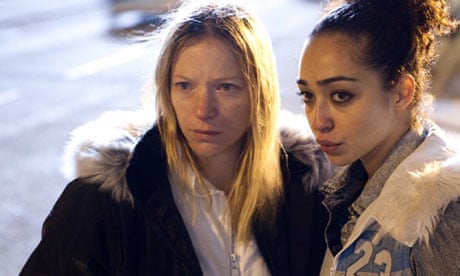The laws governing sex for sale are clear – it is legal for one person to sell sex to another as long as elements including soliciting, trafficking, coercion and under-18s are not involved. However, if sex workers operate together they are breaking the law.
During its review of prostitution the government considered allowing more than one person to work together on the grounds that it would improve safety and would encourage those involved in street prostitution to work indoors, making them less vulnerable to attack. Much to the consternation of sex workers and their advocates, the government ultimately decided not to pursue this proposal.
But last week Claire Finch, 49, was cleared by a jury at Luton crown court of running a brothel – a decision described by some sections of the media as throwing Britain's "antiquated" prostitution laws into confusion. Finch admitted offering topless massages with "happy endings" from her bungalow in the quiet Bedfordshire village of Chalton. Up to four women worked from her home offering a range of massage and sexual services. There was no trafficking, coercion, drugs or under-age girls involved, and no public nuisance caused. Indeed, two of Finch's neighbours – one a woman of 85 – gave evidence on her behalf.
Few cases of this kind come to court because those charged with such offences do not want to have their names dragged through the courts and the media and quietly plead guilty. However, Finch was determined to fight the case in the hope of setting a precedent allowing sex workers to operate collectively in order to protect themselves.
"This is a victory for women who want to do this work from the safety of their houses. I will do whatever I can to campaign to have the law changed," said Finch. She was backed by the English Collective of Prostitutes who hailed the court's decision and said it greatly strengthens the case for the decriminalisation of prostitution.
Finch's legal team called on parliament to clarify the law.
Finch told the court that after she was charged she began working alone from home and was attacked by one customer, a problem she had never had when working with others. The UK Network of Sex Work Projects has also expressed concern about the dangers of working alone. Jane Ayres, manager of the Praed Street Project in central London, which provides health services for sex workers, has said that tougher laws surrounding women working together from the same premises has led to a sharp increase in them working alone from their own homes and increasing the risks to their safety.
"Two and a half years ago we had 40 or 50 traditional flats on our outreach round. All but eight of them have disappeared. The majority of outreach now is to women working alone, often in their own homes As a result of these changes established health services are finding it harder to engage with potentially vulnerable women," she said.
The laws preventing sex workers from operating together are leading to more dangerous working practices rather than ending prostitution. It is vital that the law intervenes where trafficking, coercion or public nuisance are involved and that proper support is given to victims to leave prostitution. But whoever is running the country after Thursday should take a long hard look at how existing legislation is putting those who make a choice to sell sex at risk and adopt a more pragmatic approach.
